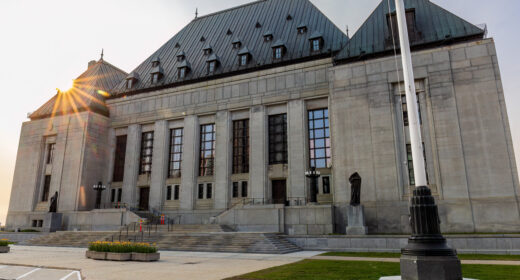As recently reported by the CBC, the Lucky Bastard Distillers of Saskatoon are finding the road to obtaining a Canadian trademark registration a little rockier than expected. Specifically, the craft distillery’s trademark application for “Lucky Bastard” is currently being objected to as being obscene and therefore in contravention of section 9 of the Canadian Trade-marks Act.
Lucky Bastard Distillers now has the opportunity to argue this objection. However, it appears that a previous trademark application filed by the distillery may have had similar challenges to overcome, indicating that a registration for the trademark will be difficult to obtain.
Interestingly enough, the Canadian Trademark Register contains numerous registered trademarks that include the objected term “bastard”, which serves warning to Canadian trademarks owners and practitioners that when it comes to registrability of a trademark in Canada, past performance is not necessarily indicative of future results!
This Canadian story bears some resemblance to a significant dispute in the United States, where the NFL’s Washington Redskins have had their trademark registrations cancelled for containing a racial slur that may disparage or falsely suggest a connection with persons, institutions, beliefs or national symbols, thereby bringing them into contempt or disrepute.
In the United States Patent and Trademark Office’s Trademark Trial and Appeal Board’s (TTAB) Decision in Blackhorse v. Pro Football, Inc., the TTAB held that six registrations containing the term “Redskins” obtained between 1967 and 1990 must be cancelled because “they were disparaging to Native Americans at the respective times they were registered” in contravention of §2 of the Lanham (Trademark) Act.
The decision was subsequently upheld in a 2015 appeal to the US Federal Court.
In an at-times comically vulgar opening appeal brief filed in October 2015, Pro Football, Inc. (the Washington Redskin’s parent company) argued that the applied provisions of the Lanham Act are unconstitutional, the trademarks under scrutiny were not offensive when filed, and finally that the case should be dismissed given the significant delay that has occurred.
Final briefs are due on December 22, 2015 and the case is slated to be heard in 2016.
One thing that is safe to say: both of these cases are certainly going to contribute interesting developments to the world of trademark law in 2016, with respect to trademark registrability in Canada and the US and perhaps a few lively conversation starters for your holiday parties!
As always, stay tuned for further developments.


